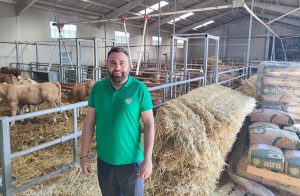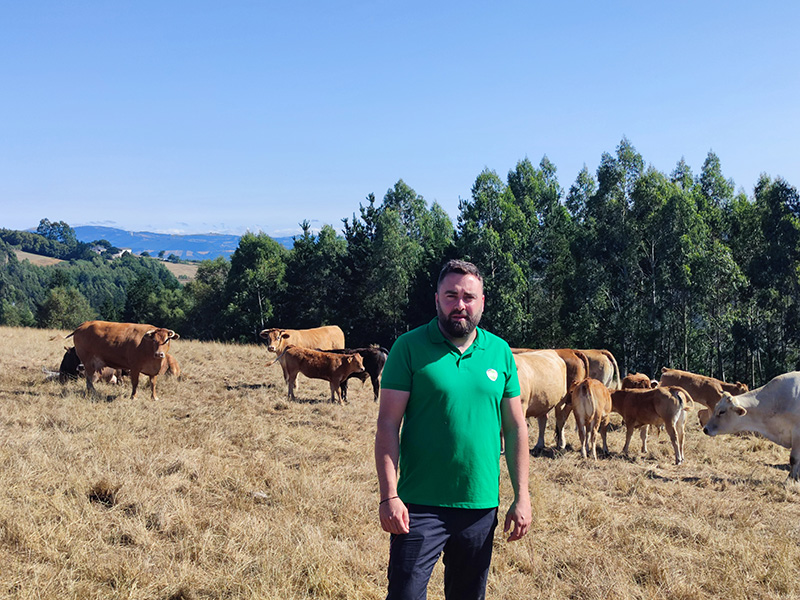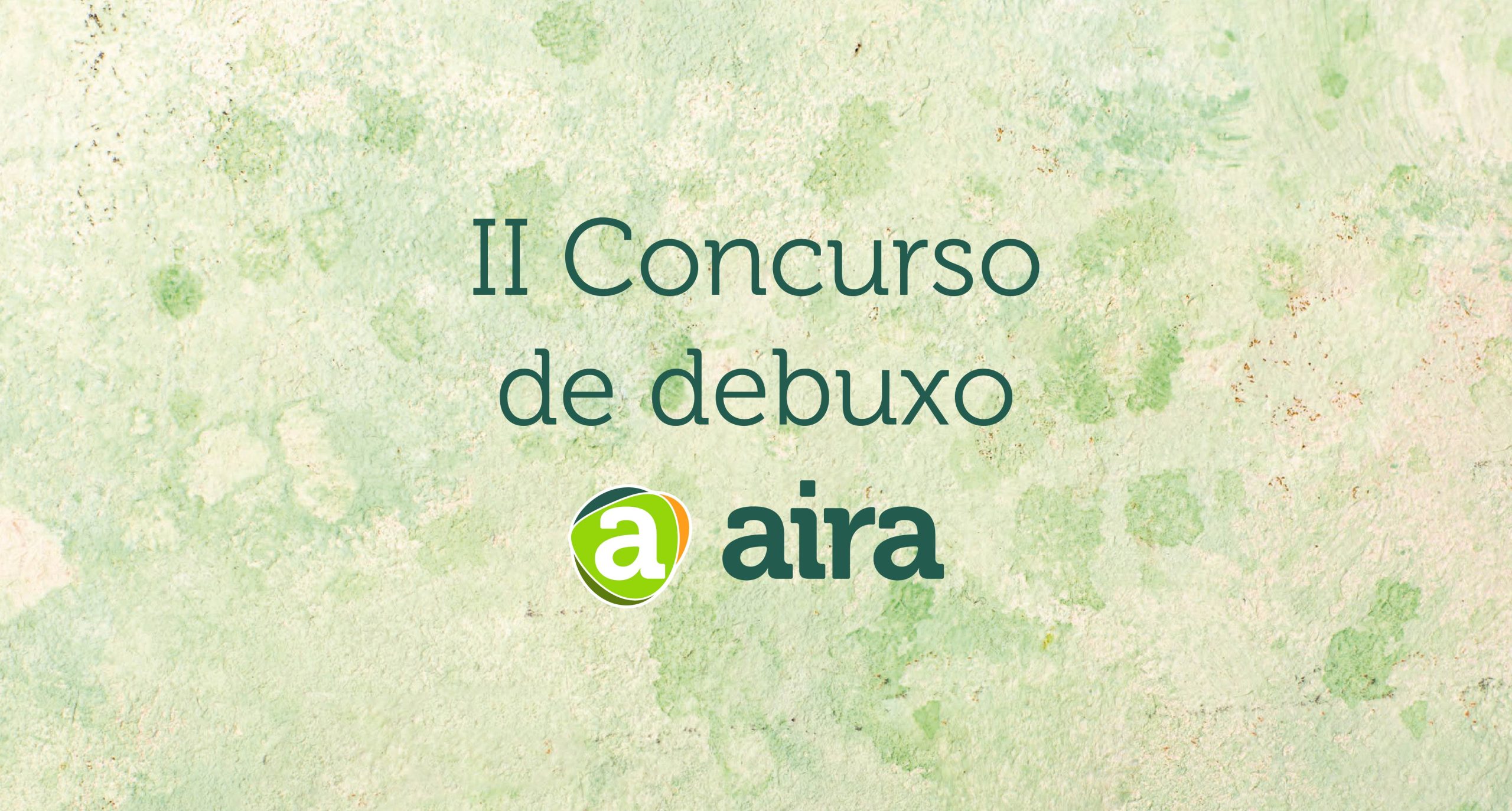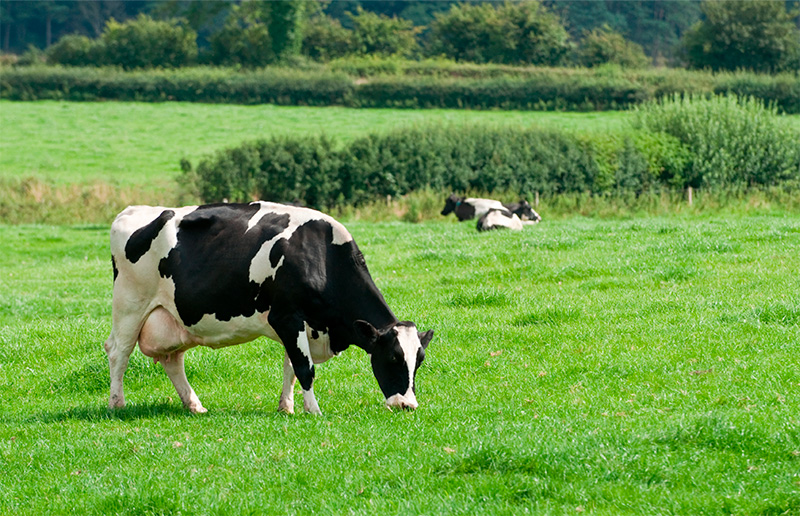Fonchave is one of AIRA’s partner farms focused on beef cattle production, with a calf feedlot and a herd of cows in extensive farming. We talked to Félix Fernández to learn more about the family cattle ranch.
Félix Fernández González is today at the head of the Fonchave livestock farm, located in the place of the same name in Becerreá (Lugo), after joining the business in 2008 and taking over from his parents Amable and Begoña, who had started the business more than three decades ago and retired in recent years.
Fonchave is one of AIRA’s partner farms focused on beef production and cheese making. “ My father wanted to start a bakery, he already had the firewood here, but he started buying first one calf, then seven and then twenty… it grew little by little to what we have today,” says Félix.
This feedlot currently has about 800 calves, mostly Limousin, but also Rubia Gallega and other beef breeds. Every Tuesday, Félix buys calves from the Central Agropecuaria de Silleda, both suckling and pasture calves, which will remain in the feedlot until they are about 11 months old. He has several sheds, some built in recent years with patio areas so that the calves can go out, and other older ones with wooden structure built by his parents when they started with the activity.
Along with the calves he buys, he has a herd of 130 head of cattle that are kept extensively in different lots. In this case, Limousin crosses with other breeds predominate. “The Limousin breed is the one that works best for us, they are born strong and small, which makes calving easier and they grow immediately. In 10 days the calves are unrecognizable,” explains the farmer.
In addition, Felix has 7 Limousin bulls for herd mating. The males stay with the cows for part of the year and only retire for a few months, to concentrate calving in the spring. “ This breed is very rustic and now they are also tame, not like years ago when they were very brave and surly,” says Felix.
 Distributed in different lots, these animals are spread over the nearly 100 hectares that the cattle ranch manages, between owned land (70 ha) and rented land (30 ha). On this area, in addition to pasture, Félix collects fodder for the cattle.
Distributed in different lots, these animals are spread over the nearly 100 hectares that the cattle ranch manages, between owned land (70 ha) and rented land (30 ha). On this area, in addition to pasture, Félix collects fodder for the cattle.
In this livestock farm, all animals are marketed under the IGP Ternera Gallega seal, both in the Supreme category (those born on the farm and that remain outside with their mothers) and in the Ternera Gallega category, those that remain in the feedlot.
Strong tradition in cheese production
Fonchave livestock also has a strong tradition in the production of cheeses, which are marketed under the brand Queixos Begoña and the Fonchave brand, under the PDO Cebreiro. Today they distribute to stores in Becerreá (such as AIRA’s own delegation), A Fonsagrada, Lugo or even Ponferrada. “My great-grandmother and my grandmother already made cheese and my mother also decided to continue making it. In the family we have been making cheese since 1915, as the labels of our cheeses show,” Félix acknowledges.
To make the cheeses, they have a herd of about 20 cows of different breeds such as Parda Alpina, Fleckvieh, Jersey, Asturian, Belgian or Limousin and Holstein crosses. “These are cows that do not have a large production, but whose milk lends itself very well to making cheese,” the dairy explains.
Experience with AIRA
What is your experience with the Cooperative like?
My parents started with the Cooperative more than 30 years ago, with COELPLAN, and when I joined, we were happy and I am still with the Cooperative. When my father started with calves, the Cooperative already made a specific formula for small calves and today we continue with a specific feed formula for our animals.
Why are you a member of AIRA? What services does the Cooperative offer that are useful to you?
One of the services we use the most is the feed and there AIRA’s prices are very competitive with respect to what others can offer you, besides having a good service and advice by professionals such as José Luis López Salgueiros, with whom we are very happy. In addition, in the Cooperative we also buy other products for our livestock such as electric shepherds, nets or medicines. With the Cooperative we also do the analyses when we need them.
Any aspect of the Cooperative that you think should be worked on?
In general we are happy with the Cooperative, we like the way things are being done and the results that are being obtained also seem to us to be good.


